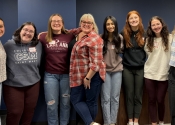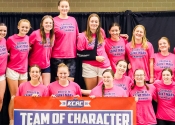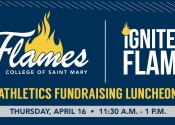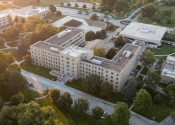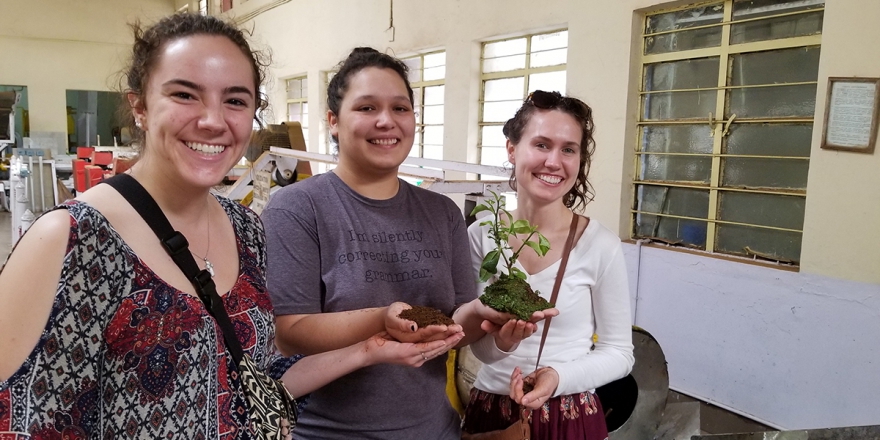
CSM students travel to India to promote sustainability
OMAHA, NEB. – College of Saint Mary (CSM) professor Dr. Ganesh Naik and three CSM students just recently returned from a 15-day, service-focused trip to India. While there during spring break, the group explored new programs to improve the lives of locals, while studying the ecosystem and finding real solutions to global problems.
“The goal of the trip was to explore sustainability in different cultures and analyze the impact of human civilization on the ecosystem,” said Dr. Naik, professor of chemistry. “India is a very old civilization and is one of the most populated countries in the world, so naturally we can see the impact humans have had on the ecosystem over the years.”
But the trip served as more than just an intense learning experience. In addition to uncovering ecological issues, the group actively served local villages through a CSM-sponsored sustainability initiative and by laying the groundwork for a program that will help orphans learn English.
Dr. Naik and students Kiah Shaw, Brooke Olmer, and Mary Ramirez, all of whom were members of Naik’s Earth Wisdom class, used the opportunity to talk to officials about environmental problems and bring locals active solutions. One such solution came as the group visited a village to tackle the problem of water scarcity. An issue that has been devastating to the area’s local agriculture, villagers currently are harvesting water, but it still remains scarce.
After analyzing the problem, in order to bring life back to the region, College of Saint Mary is now sponsoring 500 mango trees to be planted in the village. The people who live there will be responsible for taking care of the trees. If the project is successful, it will be replicated in other villages. Since trees take in carbon dioxide and give off oxygen, they reduce the carbon footprint and greenhouse gas emissions. As a result, CSM and the group have effectively reduced the university’s carbon footprint.
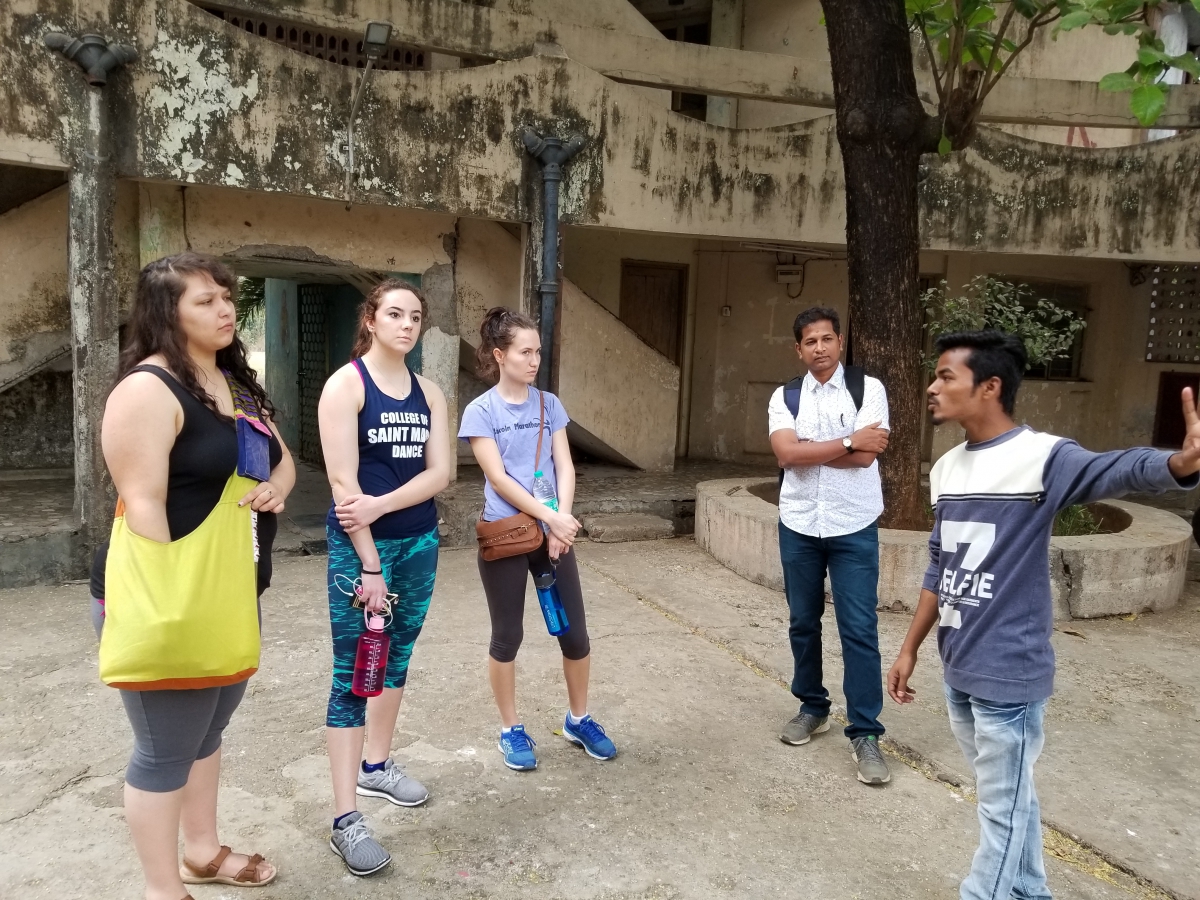
During the trip, students also visited an orphanage in Mumbai where they quickly witnessed a shortage of educational tools. The students in this orphanage rarely hear English and lack the tools to develop their English vocabulary. Because English is India’s official language, this puts individuals at a major disadvantage. As a result of the visit, CSM is planning to initiate a program to help the kids in the orphanage learn English. The orphanage will receive a computer lab, so CSM students can communicate and teach them on a weekly basis.
After learning from organization leaders, the group met up with students from University of Nebraska Omaha (UNO) in Delhi to discuss international studies and future sustainability projects. Dr. Naik is planning to collaborate with UNO’s International Studies program and with a business management school in Delhi to establish a curriculum. Through the meeting, students were able to see the inner workings of life-changing initiatives and help propel the project forward.
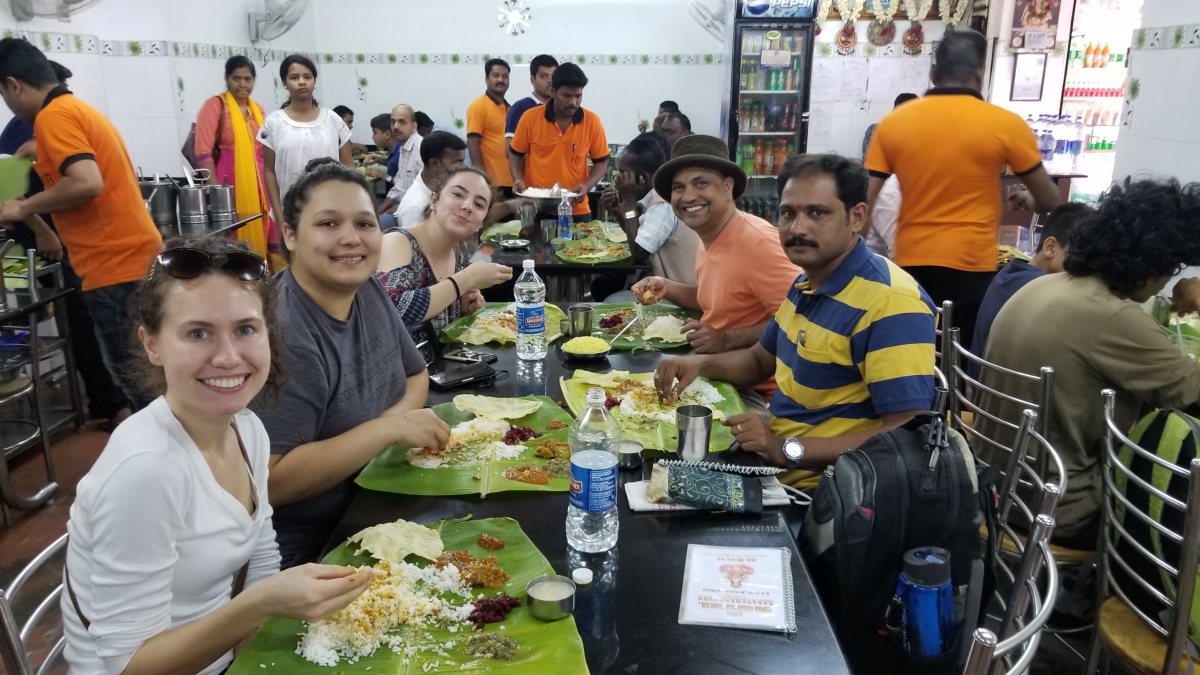
In Delhi, the students visited Salam Balak Trust, an organization that educates and empowers homeless children. They interacted with members and leaders, drawing inspiration for future humanitarian projects.
“The homeless children between the ages of 6 and 18 can live at this place, receive education, and be trained on how to get a job and be independent adults,” said Dr. Naik. “Each year, Salam Balak Trust rescues over 5,000 children from vulnerable situations.”
Yet another leg of the trip emphasized the sustainability of localized markets, sparking opportunities for global solutions. The group visited a tea garden in Kochi and Mother’s Dairy in Delhi, which is an organic milk producer and a profit-sharing co-op. The visits helped students explore sustainability models within real-world settings and learn how to lead through them.
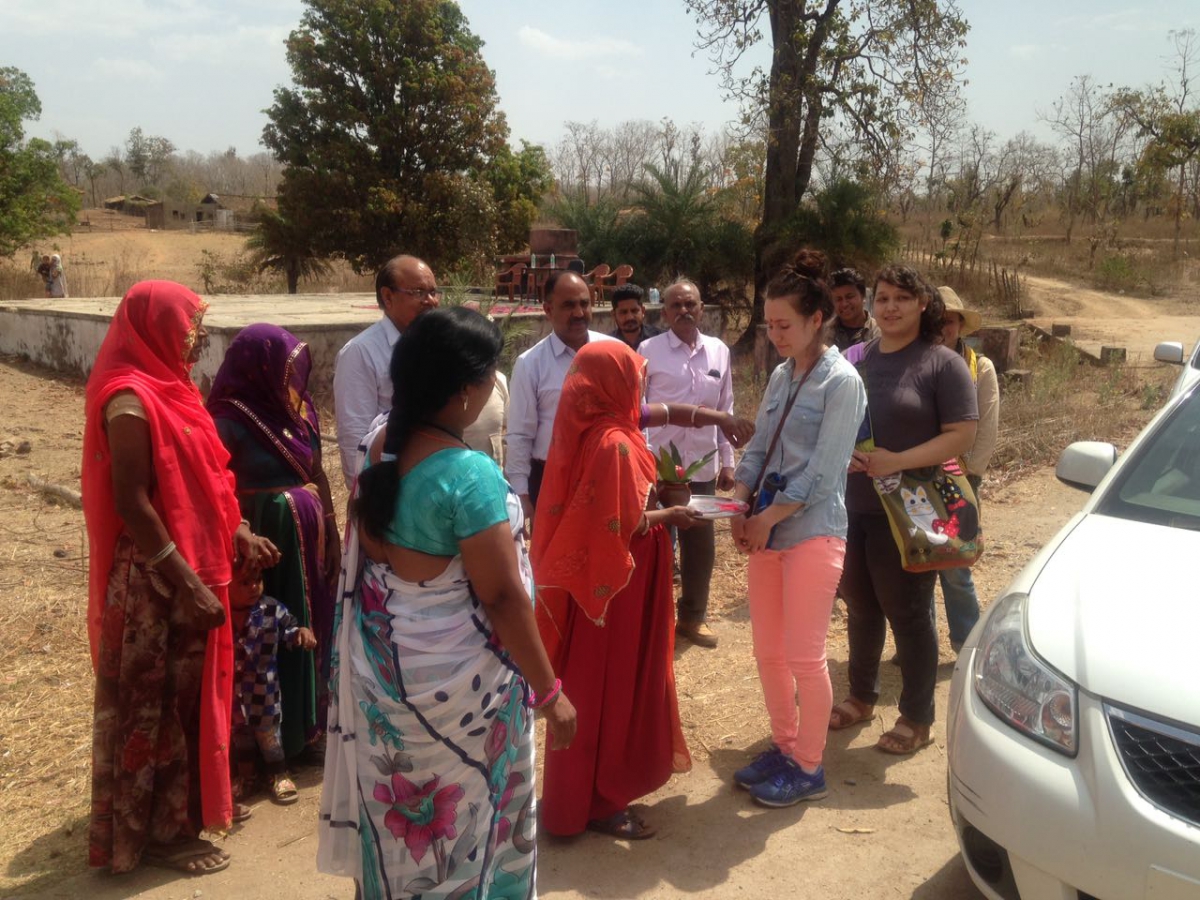
Throughout the trip, students broadened their perspectives and gained new insight into Indian culture. They visited the world heritage site “Elephanta Caves” near Mumbai, the Taj Mahal, toured the American Center for India, and spoke with the U.S. foreign officer in order to gain his perspective on U.S.-India relations. Overall, this action-packed, 15-day journey served as a hands-on learning experience and a chance to dive into global problem-solving techniques.
Dr. Naik, who is originally from Mumbai, India, says he was pleased with the diverse range of learning opportunities that students explored. The trip was such a success that he is planning another trip next year, and five students have already signed up.






